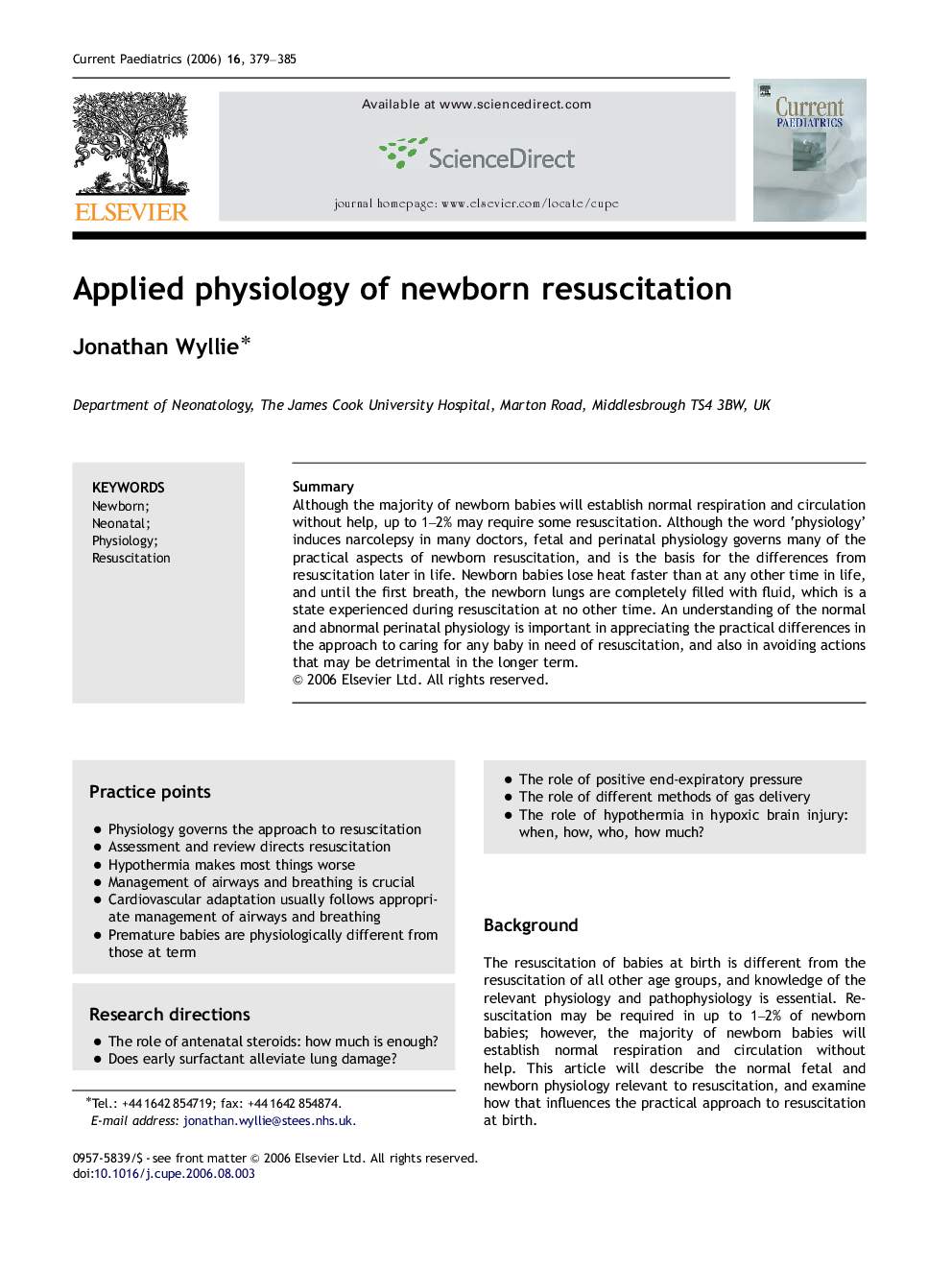| Article ID | Journal | Published Year | Pages | File Type |
|---|---|---|---|---|
| 4152248 | Current Paediatrics | 2006 | 7 Pages |
Abstract
Although the majority of newborn babies will establish normal respiration and circulation without help, up to 1-2% may require some resuscitation. Although the word 'physiology' induces narcolepsy in many doctors, fetal and perinatal physiology governs many of the practical aspects of newborn resuscitation, and is the basis for the differences from resuscitation later in life. Newborn babies lose heat faster than at any other time in life, and until the first breath, the newborn lungs are completely filled with fluid, which is a state experienced during resuscitation at no other time. An understanding of the normal and abnormal perinatal physiology is important in appreciating the practical differences in the approach to caring for any baby in need of resuscitation, and also in avoiding actions that may be detrimental in the longer term.
Related Topics
Health Sciences
Medicine and Dentistry
Perinatology, Pediatrics and Child Health
Authors
Jonathan Wyllie,
